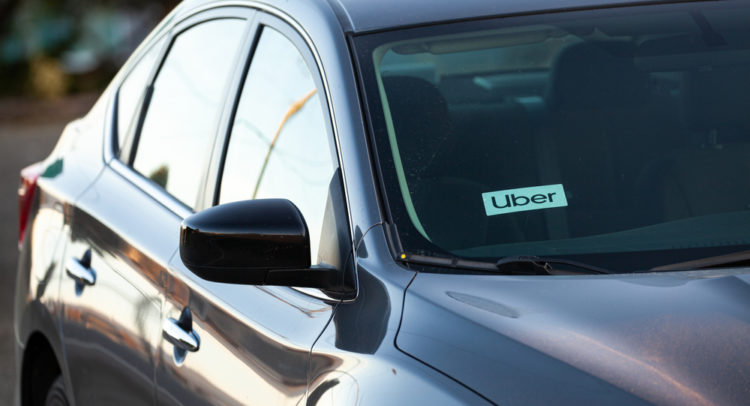Last week was a big week for Uber Technologies (NYSE: UBER) in terms of overall gross bookings, according to its CEO Dara Khosrowshahi. I’m neutral on Uber’s shares.
Discover the Best Stocks and Maximize Your Portfolio:
- See what stocks are receiving strong buy ratings from top-rated analysts.
- Filter, analyze, and streamline your search for investment opportunities with TipRanks’ Stock Screener.
“Our overall mobility business continues to get closer to pre-pandemic levels,” Khosrowshahi quoted saying in a CNBC report. “We’re starting to inch up to call it like the 90% mark, we’re not quite there. Last week was our best week, you know, post-pandemic.”
That’s undoubtedly good news for the ridership company, which, together with its close competitor, Lyft (NASDAQ: LYFT), has seen booking plunging during the pandemic.
Is it time to feel good about Uber? It depends on whether the company can fix its business model and become profitable.
Striving for Profitability
Uber is a great company, but it has yet to deliver any profits. For instance, in the most recent quarter, Uber company reported a loss of $2.4 billion despite a strong turnaround in bookings.
There are a couple of reasons for it. One of them is that it is still a young company. Young companies have to spend a great deal of money to promote their products or services. Another factor is its business model, making it hard to monetize its technology.
Uber’s platform is very similar to Lyft, meaning that the two companies operate in a homogeneous oligopoly, where customers can switch back and forth between the two platforms. As a result, each company has little pricing power.
Can the Model be Fixed?
Uber’s and Lyft’s business models can be fixed in two ways. One way is for the two companies to join forces and set the price. That would certainly catch the eye of regulators. Another way is to differentiate their product offerings and create lock-in relations, learning a lesson or two from other technology companies.
Recently, Uber seems to be doing just that with the introduction of Uber One. That’s a $99.99 annual membership program that bundles together the best of Uber rides, delivery, and groceries.
“We want our customers to experience firsthand how Uber can make their every day more effortless,” said Awaneesh Verma, head of Membership at Uber. “Uber One offers elevated access to all of Uber: rides, delivery, and groceries. Members get preferred pricing, premium support, and surprise and delight perks that can make every day more fun.”
Here are some of the benefits for Uber One members:
- Member pricing guaranteed, with 5% off all eligible rides and 5% off eligible delivery orders on food, grocery, alcohol, and more
- Unlimited $0 Delivery Fee on $15+ orders and $30+ grocery orders
- Priority service with top-rated drivers on rides and elevated member support
- Uber One Promise: members get $5 in Uber Cash on eligible deliveries if our Latest Arrival estimate (shown after an order is placed) is wrong
- Exclusive access to perks like special offers and promotions, and invite-only experiences
If successful, Uber One will help Uber monetize its business model in two ways. One of them is a steady and recurrent revenue. Another one is the re-enforcing of loyalty among its customers.
TipRanks’ Smart Score
TipRanks’s Smart Score rating system doesn’t seem to capture the possibility that Uber will fix its business model anytime soon. It assigns Uber a Smart Score of 7 out of 10, down from 8 three months ago, citing insider buying, optimistic analyst ratings, and news sentiment.
This is contrasted by negative technicals, fundamentals, and very negative TipRanks investor sentiments.
Wall Street’s Take
Wall Street doesn’t seem to think that Uber’s business model will be fixed anytime soon. As a result, Uber’s shares have lost 19.6% of their value year-to-date, compared to a 24.4% gain for the S&P500 Index.
Uber has a Strong Buy consensus rating, based on 19 Buys and one Hold rating assigned in the past three months. The average Uber price target of $69.55 implies 69.1% upside potential.
That’s an optimistic price target, as it is too early to figure out whether Uber One will yield the right results. Price targets range from a high of $82 to a low of $50.

Disclosure: At the time of publication, Panos Mourdoukoutas didn’t own shares of Uber.
Disclaimer: The information contained in this article represents the views and opinion of the writer only, and not the views or opinion of TipRanks or its affiliates. Read full disclaimer >









